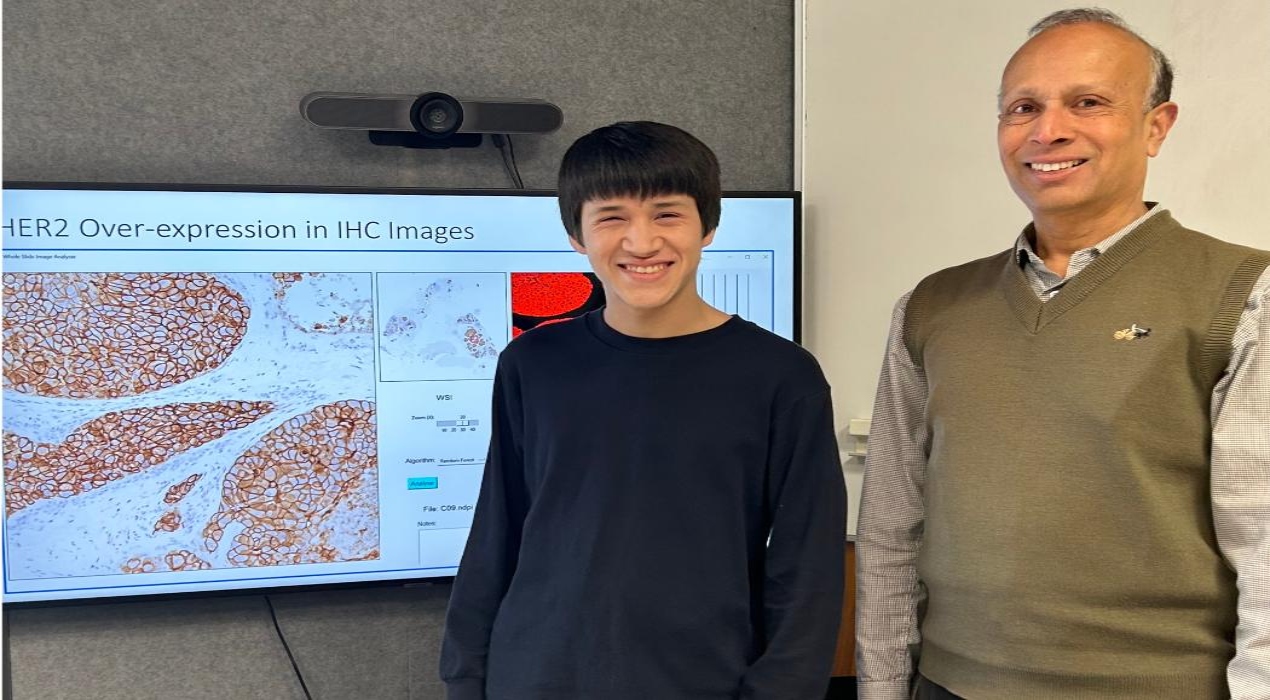
|
Getting your Trinity Audio player ready...
|
Te Whare Wānanga o Waitaha | University of Canterbury (UC) Professor Ramakrishnan Mukundan and PhD candidate, Andrew Davidson, from the Department of Computer Science and Software Engineering are collaborating with Dr Gavin Harris, an Anatomical Pathologist at Canterbury Health Laboratories. Together, they employ high-resolution digital images of human tissue samples to enhance cancer diagnosis.
“This technology allows us to enhance image processing methods, enabling the automatic identification of features that pathologists find relevant. With images containing 60,000 pixels, we have an extraordinary level of tissue detail and a vast amount of data,” explained Professor Mukundan.
Currently, in New Zealand (Aotearoa), pathologists primarily examine tissue samples under a microscope. They then utilise their expertise to analyse the cancer and produce a diagnostic and treatment report. However, this approach is inherently subjective.
Emerging image processing algorithms represent a leap forward in analysing highly detailed, high-resolution images, offering the capability to scrutinise minute structures, including down to the level of individual cell nuclei. This breakthrough technology plays a pivotal role in identifying and quantifying diagnostically significant characteristics, a task that is often impractical for pathologists to perform manually, according to Professor Mukundan.
The potential of computational pathology goes beyond mere automation. These advanced algorithms can assess various tissue attributes, recognising different pertinent patterns and correlations that might otherwise escape human observation.
Professor Mukundan further emphasises that with the aid of this technology, pathologists will no longer need to seek out these features within the images actively. Instead, the algorithms will autonomously identify and highlight them, providing valuable additional tools and information to facilitate the diagnostic and evaluative processes.
Dr Harris is optimistic about harnessing whole-slide images of human tissue to enhance the precision of cancer treatments for patients. “By adopting a computational approach, we can measure the characteristics present in tissue samples with a level of accuracy that surpasses current methods. This, in turn, paves the way for a more personalised approach to cancer care,” notes Dr Harris.
Currently, the research relies on digitised tissue samples sourced from online repositories to train the algorithms. Human expertise is still essential to ensure the accuracy of the algorithm outputs.
Professor Mukundan explains that the algorithm’s training process involves extracting pertinent features from training data, which is the foundation for building a comprehensive knowledge base. Subsequently, this knowledge is employed to categorise tissue sample images that have yet to be encountered.
Upon concluding the training phase, the research team can evaluate the algorithm’s performance and accuracy in collaboration with pathologists, making any necessary adjustments.
The team has secured recent funding, enabling them to access scanned whole slide images of tissue samples. This valuable resource aids in assessing the algorithms’ effectiveness. The grant supports a detailed analysis to validate the algorithm further using an entirely new test dataset.
As part of his PhD, Davidson has been involved in algorithm development, experimental analysis, and result validation. According to him, the results obtained so far suggest that the new systems under development have the potential to enhance health outcomes for cancer patients significantly. This improvement hinges on developing more precise diagnostic and classification schemes essential for formulating effective treatment strategies.
The research team’s goal is to finalise their work by the end of 2024, culminating in creating a machine learning algorithm capable of accurately identifying cancer subtypes.
















